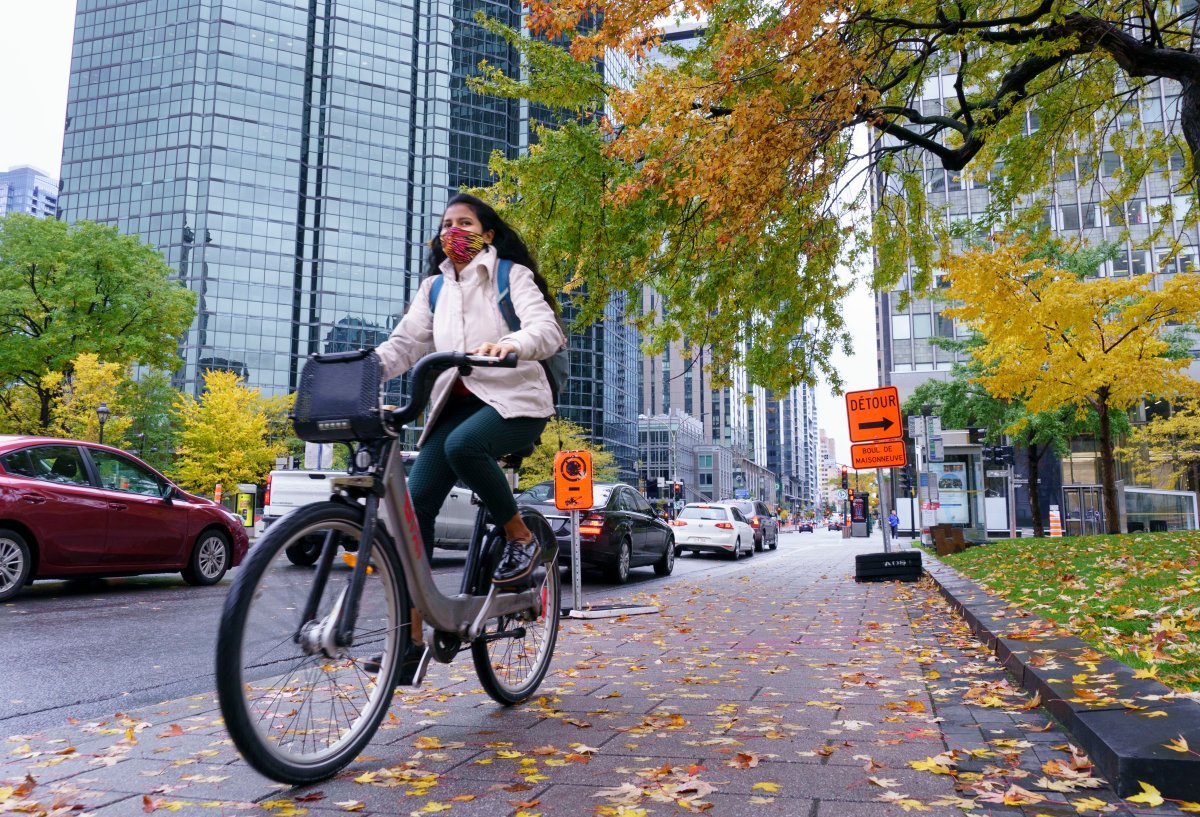Quebecers are asked to continue abiding by public health measures to curb the spread of the novel coronavirus, but are also urged to take care of their mental health and check in on people who live alone as the second wave of the pandemic continues.

Premier François Legault said the priority is to keep schools open as the province reported 877 new infections, 12 more deaths and 33 additional patients in hospital Tuesday.
“The number of new cases has stabilized around 1,000 a day but we still see an increase in hospitalizations and deaths,” he said.
Legault said citizens’ collective efforts in recent weeks, which include widespread restrictions in designated red zones, have prevented daily case tallies from spiking. He urged people to sign up for the COVID-19 alert notification app as well.
“Everyone has a role to play in this mission and I’m counting on you all,” he said.
Yet, Legault acknowledged the tighter restrictions during the second wave and isolation from others are difficult for many, especially for those who live alone.
“I am very aware that the measures put in place are hard for Quebecers,” he said.
The government is urging anyone who feels unwell or is experiencing anxiety to call the 811 hotline. The premier also encouraged Quebecers to visit others who live on their own and may be be struggling — but not in groups.
“You have the right to go,” he said.
The focus on mental health comes as a new poll indicates that one in four Canadians say their stress level is higher than during the first wave of the pandemic.
Participants cited concerns about the length and severity of the health crisis as their biggest source of anxiety, followed closely by social isolation and family health.
However, Health Minister Christian Dubé could not say if or which strict measures in red zones will be extended past Oct. 28 — and those rules include a ban on gatherings in private homes, with few exceptions.
READ MORE: 25% of Canadians say their mental health is worse than in 1st coronavirus wave: poll
Quebec, the province hardest hit by the COVID-19 health crisis, has seen 95,216 cases and 6,055 deaths to date.
On Tuesday, officials said one death previously attributed to the virus was unrelated and 90 cases that had been identified as positive were in fact, negative.
The number of hospitalizations now stands at 565. Of those patients, 100 are in intensive care, an increase of eight from the previous day.
The province carried out 16,291 tests Sunday, the latest day for which that information is available.
Open to ‘all solutions’ to reduce workload of nurses
Quebec’s premier says his government cannot offer raises above the level of inflation to nurses working in hospitals, but that he is “ready to do pretty much everything.”
“I’m open to all the solutions to reduce nurses’ workload,” he said. “The only thing we have to understand is that we can’t both make financial efforts to reduce workload and simultaneously give salary increases beyond inflation.”
The comments come after nurses and other health-care workers blocked bridges in Montreal and Quebec City Monday in protest of work conditions.
The Fédération interprofessionnelle de la santé (FIQ), the union representing them, says the main sticking points are safe nurse-patient ratios and the creation of complete and stable care teams.

Legault said he knows nurses are tired — especially as they deal with the demands of the second wave — and that his government has failed to keep a promise to end mandatory overtime.
“I understand the fatigue. I understand the frustration of the nurses,” he said, adding the province is looking at exploring solutions to reduce the nurses’ workload.
But Legault also acknowledged that many full-time jobs go unfilled and new nurses cannot be trained as quickly as patient attendants. He said any deal the province reaches must also respect Quebecers’ ability to pay, which has taken a hit during the pandemic.
— With files from the Canadian Press





Comments